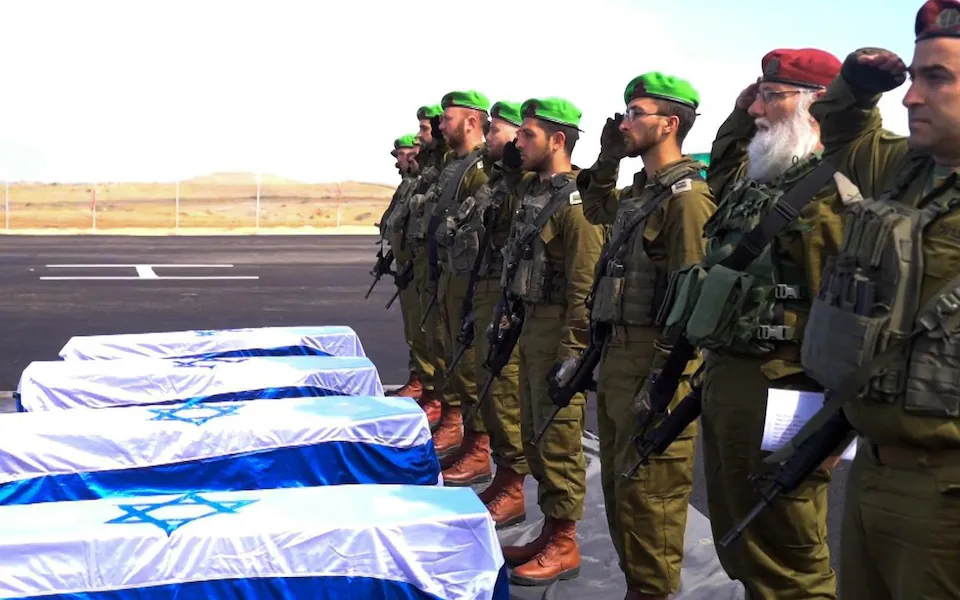Hamas, parading the coffins of four hostages, has drawn severe condemnation from the United Nations Human Rights chief, Volker Turk, who described the act as “abhorrent and cruel,” asserting that it contravenes international law. This event, characterized as a “disgusting spectacle,” took place in Khan Yunis, a city in central Gaza, where the coffins were believed to contain the remains of Shiri Bibas, four-year-old Ariel, his infant brother Kfir, and 85-year-old Oded Lifthitz.
During the event, Hamas supporters watched as masked fighters clad in black carried the coffins through crowds of onlookers, culminating in a presentation on stage. Behind the coffins was a provocative poster depicting Israeli Prime Minister Benjamin Netanyahu as a vampire, with blood dripping from his fangs, further politicizing the already tense atmosphere. The image served as a stark reminder of the deep-seated animosity that characterizes the ongoing conflict.
As the coffins were handed over to the Red Cross, Israeli authorities expressed significant concerns regarding the potential for booby traps. Reports indicated that the coffins had been locked, and Hamas did not provide any keys, raising alarms about the safety of those involved in the handover process. The fear was that the coffins might have been rigged to detonate, a tactic not unheard of in the context of the ongoing violence.
In his statement, Volker Turk emphasized the necessity of treating the remains of the deceased with dignity, reiterating that any transfer of bodies must adhere to the prohibition against cruel, inhuman, or degrading treatment. He stressed the importance of respecting the dignity of both the deceased and their families, underscoring the profound impact such acts have on the grieving process.
Following the handover, military engineers were tasked with examining whether any personal belongings belonging to the hostages had been returned alongside the bodies. The coffins, draped in Israeli flags, have since been transported to the Abu Kabir forensic institute in Jaffa, Tel Aviv. There, forensic teams are set to conduct formal identification procedures, pledging to do so “as efficiently and respectfully as possible,” while maintaining compassion for the families involved.
The incident has sparked outrage beyond the immediate context, with groups such as North West Friends of Israel, a UK-based organization, condemning Hamas for what they termed a “disgusting spectacle.” They criticized the terrorist group for using the tragic circumstances of innocent children to propagate their agenda, referring to the act as a display of “Jew-hating” sentiment.
The broader implications of this event extend into the ongoing conflict between Hamas and Israel, highlighting the tragic human toll of the violence. As families mourn the loss of their loved ones, the politicization of grief and tragedy only deepens the wounds inflicted by years of conflict.
In light of this incident, the international community is once again reminded of the complexities of the Israeli-Palestinian conflict. The actions of Hamas have reignited discussions about the ethical responsibilities of all parties involved in such deeply tragic circumstances. As the situation continues to unfold, the call for accountability and respect for human rights remains paramount, with hopes that future actions will reflect a commitment to dignity and peace.
The UN’s strong stance against the parade of hostages’ coffins serves as a critical reminder of the need for compassion and respect in the face of ongoing violence, urging all parties to consider the profound human impact of their actions.



